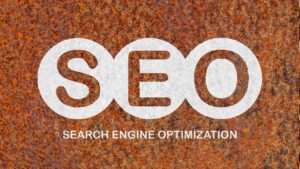Optimizing Marketing Campaigns
Optimization plays a pivotal role in devising effective marketing campaigns. More than a choice, it’s a necessity – a roadmap that guides a brand towards successful marketing, a path that brand visibility, optimum conversions, and efficient utilization of budgets converge on. Its impact extends beyond immediate marketing goals to pervade the overarching business strategy, carving out a competitive edge for the firm in the market. Example of such successful campaigns include ones run by Coca-Cola and Nike, which have made a marking impact due to optimization strategies.
Despite its recognizable significance, marketing campaign optimization isn’t short of its challenges; obstacles that marketers grapple with on their road to success. A myriad of uncertainties, ranging from non-linear customer behavior to fluctuating market trends and fierce competition, all adds to the complexity. Furthermore, the pressure of producing tangible outcomes in demanding timelines often throws marketers off balance. For instance, during holiday seasons, businesses like Macy’s face rapid changes in customer preferences, making campaign optimization a challenging task. These tasks require strategic planning, data analysis, and meticulous tracking equipped to encounter every hurdle, and exploit it to an advantage.
Optimizing Marketing Campaigns: Key Aspects to Consider
Identifying the target audience forms the first step towards optimizing a marketing campaign. Successful brands, such as Coca-Cola and Nike, employ sophisticated market segmentation techniques. They divide their larger markets into smaller segments based on shared characteristics, such as age, gender, income, or lifestyle. For instance, Nike targets athletic individuals with an interest in high-quality sportswear, prioritizing specific age groups, activity levels, and fashion preferences. Similarly, innovative methods, like persona development and predictive analytics, aid in honing the demographics, understanding their needs, preferences, and behaviors.
To optimize marketing efforts, brands must establish and align their campaign goals with overall business objectives, defining the Key Performance Indicators (KPIs) for measuring success. For instance, a business aiming to increase website traffic might consider website visits, time spent on site, or bounce rate as their KPIs. On the other hand, if boosting sales is the objective, conversion rates, average order value, and customer acquisition cost become crucial KPIs. KPIs serve as the roadmap that navigates marketing efforts towards success. They allow marketers to track progress, discern challenges, refine strategies, and deliver enhanced results consistently, even in volatile market conditions.
Choice of marketing channels plays a pivotal role in campaign optimization. Marketers must identify the most effective platforms based on the behavior and preferences of their audience. For instance, a brand targeting millennials might choose social media platforms like Instagram or Snapchat, which provide higher engagement rates for this demographic. Conversely, targeting professionals might call for more traditional channels like email or LinkedIn. By using platform-specific analytics to track performance, marketers can refine their channel strategy, reduce costs, and enhance campaign effectiveness.
Tools to Optimize your Marketing Campaigns
To amplify the impact of marketing strategies, harnessing the power of specialized tools becomes crucial. They provide capabilities to automate processes, pull off A/B tests, and help deal with vast amounts of data effectively and efficiently.
Automation tools fall into the category of indispensable assets for marketing professionals. These tools significantly reduce manual labor in campaign management, deliver efficiency, and increase ROI.  Popular options include HubSpot, MailChimp, and Marketo, well-suited to handle tasks from email marketing automation to customer relationship management. Buffer, a social media management tool, enables automated posting across various social platforms. These tools, by taking over repetitious tasks, allow marketers to focus on strategy formulation and creative content generation.
Popular options include HubSpot, MailChimp, and Marketo, well-suited to handle tasks from email marketing automation to customer relationship management. Buffer, a social media management tool, enables automated posting across various social platforms. These tools, by taking over repetitious tasks, allow marketers to focus on strategy formulation and creative content generation.
A/B Testing Tools serve as catalysts for successful marketing campaigns. They provide concrete data to determine which variant of the campaign resonates better with audiences. Prominent examples of these tools encompass Convert, VWO, and Optimizely. They allow marketers to run split tests on campaign variables like headlines, call-to-actions, or images, thereby helping in fine-tuning crucial elements of the campaigns. Moreover, Google Optimize provides a free A/B testing tool, vital for performance-driven marketers with budget constraints. By using these A/B testing tools, one can amp up the chances of campaign success by making informed adjustments based on empirical evidence.

